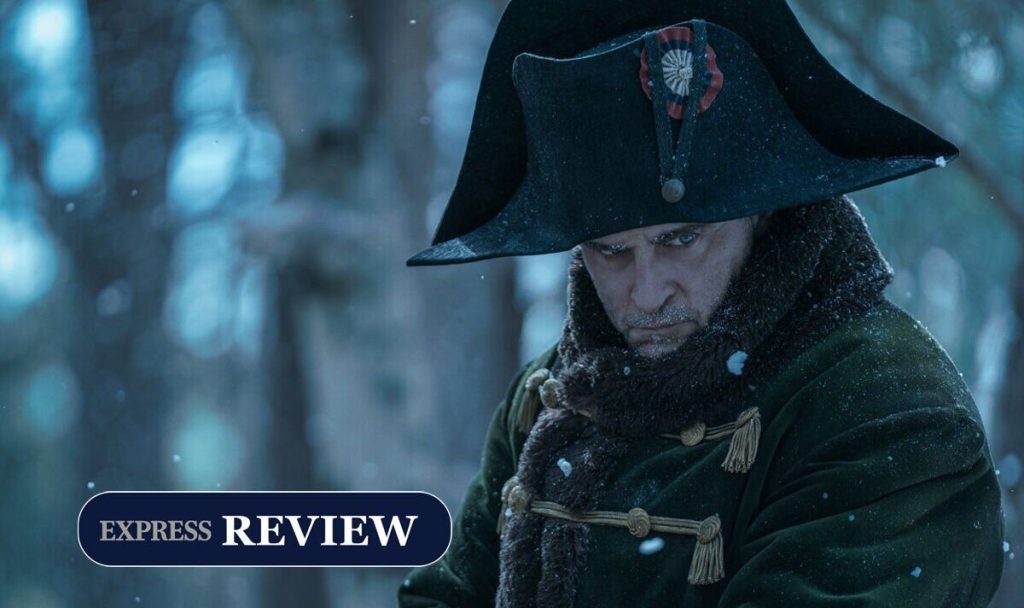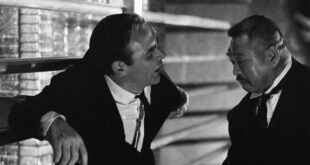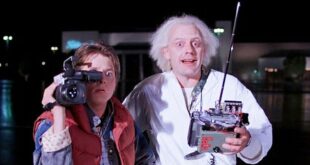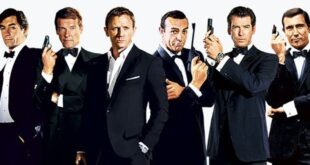
Over two decades after they worked together on Gladiator (yes, it really was that long ago) Ridley Scott and Joaquin Pheonix reunite on this big-screen biopic of the famously vertically challenged general (it’s called a “Napoleon complex” for a reason!)
Even if you slept through history in school, you are likely aware of at least some facets of the French Emperor’s life – thanks in part to a certain Eurovision-winning song by ABBA. But, obviously, there’s more to the man than an award-winning floor filler, and here Scott tries to capture the essence of Napoleon while also revelling in the spectacle of his military leadership.
Spectacle is something that Scott does well, and Napoleon is no exception. He recreates six of the warmonger’s most famous conflicts (yes, including that one) in gruesome and gory detail. The scenes are bloody and not for the squeamish. War is always brutal but when it’s conducted on horseback with swords and 19th-century weapons it seems even more visceral, especially when experienced in IMAX (which I did).
But there is more to the man than his military career and, outside of the complex battle scenes, the focus is on the man behind the uniform. At the Crux of the story is his relationship with his beloved Josephine played by Vanessa Kirby, who you may know from The Crown and Mission: Impossible. From the moment Napoleon sets eyes on his beloved, he becomes obsessed. And their volatile and passionate relationship is seemingly only marred by the fact that she can’t bear him a son and heir.
At 157 minutes long this epic is a marathon – not a sprint (maybe don’t order the large drink). It takes us from Napoleon’s mid-twenties up to his death at the age of 51. Despite the quarter of a century time frame there appears to be no attempt made to de-age Pheonix however, which sometimes feels jarring.
Kirby gives a magnetic performance as Josephine and makes it easy for viewers to see why the general would fall for her. Unfortunately, much of the depiction of their relationship wouldn’t be out of place in a Carry On film (they actually never made Carry On Napoleon but it feels like it would have been a good fit in the franchise). While he never uttered the famous “not tonight Josephine” phrase attributed to him, “every night Josephine” would be far more fitting as the saying “at it like rabbits” springs to mind. Despite this, there is never anything erotic about their encounters, and their relationship feels cold rather than passionate. This is not the fault of the actors. They are saddled with clunky dialogue from writer David Scarp.
Pheonix portrays Napoleon as somewhat boorish and buffoonish. It would seem unlikely that the real Napoleon exhibited these traits predominately, given his success in both the military and political fields. As a result, the Oscar-winning actor’s take on the character makes him almost cartoonish.
I found myself looking at my watch (never a good sign) until it got to that battle, with now elder statesman Rupert Everett brilliantly cast as the Duke of Wellington. Running through the ABBA song in my head (I of course mean Waterloo and I defy you not to sing it to yourself when that scene comes on screen) I surmised that “Napoleon did surrender” and therefore the movie must be almost over.
After that, the film trundles on for another few minutes but indeed the end is nigh for our (anti?) hero at this point. After so much pomp and splendour, his on-screen death while in exile on the Island of St Helena is anticlimactic.
This should probably come with the disclaimer “based on true events”. Asked to defend the historical accuracy of it by the BBC Scott asked historians: “Were you there? Oh, you weren’t there. Then how do you know?” But it doesn’t really take a historian to appreciate that a lot of liberty’s have been taken here. Equally, it doesn’t take a psychiatrist to know that Scott barely scratches the surface of Napoleon’s psyche.
Seemingly there is a four-hour cut that is due to land on Apple TV at some point. This may fill in some of the gaps, but, until then, this is a gloriously epic tale that appears to be more “inspired by” its eponymous hero than firmly rooted in fact.
Vanessa Kirby and Catherine Walker (in a very brief appearance as Marie Antoinette at the beginning of the movie) are both wonderful. Unfortunately, Phoenix completely hams it up, turning Napoleon into somewhat of a caricature.
Visually spectacular but emotionally unfulfilling – this deserves a watch as a well-crafted piece of cinema rather than beautifully woven storytelling. Which is a shame.
Napoleon is in cinemas now.

 Latest Breaking News Online News Portal
Latest Breaking News Online News Portal




